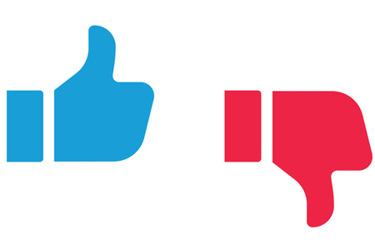CDMOs Should Stop Stringing Biotechs Along

By Louis Garguilo, Chief Editor, Outsourced Pharma

Biotechs, working closely with a CDMO’s sales manager, experience subsequent and sudden rejections of their projects by the CDMO.
Did I sense some readers wince?
If so, this might be either a reminder of a recent experience, or a real fear of the future. That’s because, as discussed earlier, we are again hearing of a problem with declinations after protracted discussions and even site visits.
Often the (real) reason projects are suddenly deemed “no-go,” and who actually made the decision internally at the CDMO, are not communicated. In some cases, some CDMO sales managers have told us they don’t even know!
When this occurs, drug sponsors aren’t the only ones who suffer.
So do the disenfranchised sales professionals at the CDMO, who (for legitimate reasons) believed they had found a good fit for both their company and you.
And the entire CDMO can suffer a hit to its reputation should this be a regular occurrence.
All this inserts friction into the development and manufacturing outsourcing ecosystem. It's a system that needs to operate smoothly to best serve sponsors and service providers, and ultimately patients awaiting medicines.
Sponsors Must Speak Up
(Note: I’ll use “sales team” throughout, but this applies to business development or any iteration CDMOs use for personnel tasked with bringing in client projects.)
So what can sponsors do?
For one thing, vocalize and emphasize.
Collectively biotechs and more established pharma should explain the need for clearer CDMO communication, and improvements such as earlier cross-functional input within CDMOs during due diligence.
No sponsor should be strung along only to learn their projects – for whatever reason – do not fit at a potential partner.
CDMOs who practice this necessitate all prospective customers go deep into discussions with a number of their competitors. There is too much "rejection risk."
CDMOs should recognize that internal misalignments between sales and tech ops/executive-level decision-makers erodes trust with potential (long-term) clients and impairs brand equity (in a competitive CDMO market).
At the least, sponsors should ask: What are the details of your internal project-vetting process? How will my project be judged against others?
We often speak of sponsors learning to present CDMOs with more precise RFPs, and CDMOs providing detailed replies (or questions) to those RFPs.
But also needed is a mutual investment in the creation of a project-qualification checklist, or fit-for-facility assessment.
Sponsors should also push for clarity on current constraints at the CDMO – the real capacity status, available human resources, and specific internal goals and objectives.
Solutions: Integration, Transparency, and Discipline
Stepping back a bit, we can see that in its totality, the problem we are encountering here lies in poor – or purposely non-transparent – communications, both internally at CDMOs and between CDMOs and perspective clients.
There is, then, as mentioned above, a critical need for recognizable cross-functional deal-assessment teams at CDMOs, obviously including the sales professionals.
Technical SMEs, quality/regulatory and operational staff should be represented to some degree when evaluating programs from the start.
CDMOs may object here.
"Who has the bandwidth for this kind of attention to each perspective customer or project?"
That concern is reasonable. You have a business to run, current projects to deal with. If we have overstated our case here, it is only because problems seem to be growing.
It does some logical, though, that having a project-evaluation system that in the end does not alienate potential customers, is good for business.
Sponsors appreciate honesty. Hearing a "not now for this project" sooner rather than later is much more workable.
Back To Sales
Let’s double back to the CDMO sales professional where all this started, and to whom we applied a measure of sympathy.
We cannot dismiss the potentiality that in some of these cases of late-informed declinations of projects, the sales professional is in fact complicit in the misunderstandings.
I’m not here talking about sales managers promising anything to a sponsor to get a foot in the door.
But about a sales professional doing his or her best, but perhaps lacking in sufficient training or technical understanding to pre-qualify projects more accurately, and thus reduce “false positives.”
Of course that training is up to the CDMO. (CDMOs should know, by the way, that sponsors can often sniff out a sales team not up to the standards that can facilitate the best interactions.)
The final reality is that CDMOs with disconnected internal operations and a disenfranchised or inadequately trained sales team makes moot the whole purpose of a sponsor’s due diligence.
Both sides of the outsourcing equation should work to get this fixed.
